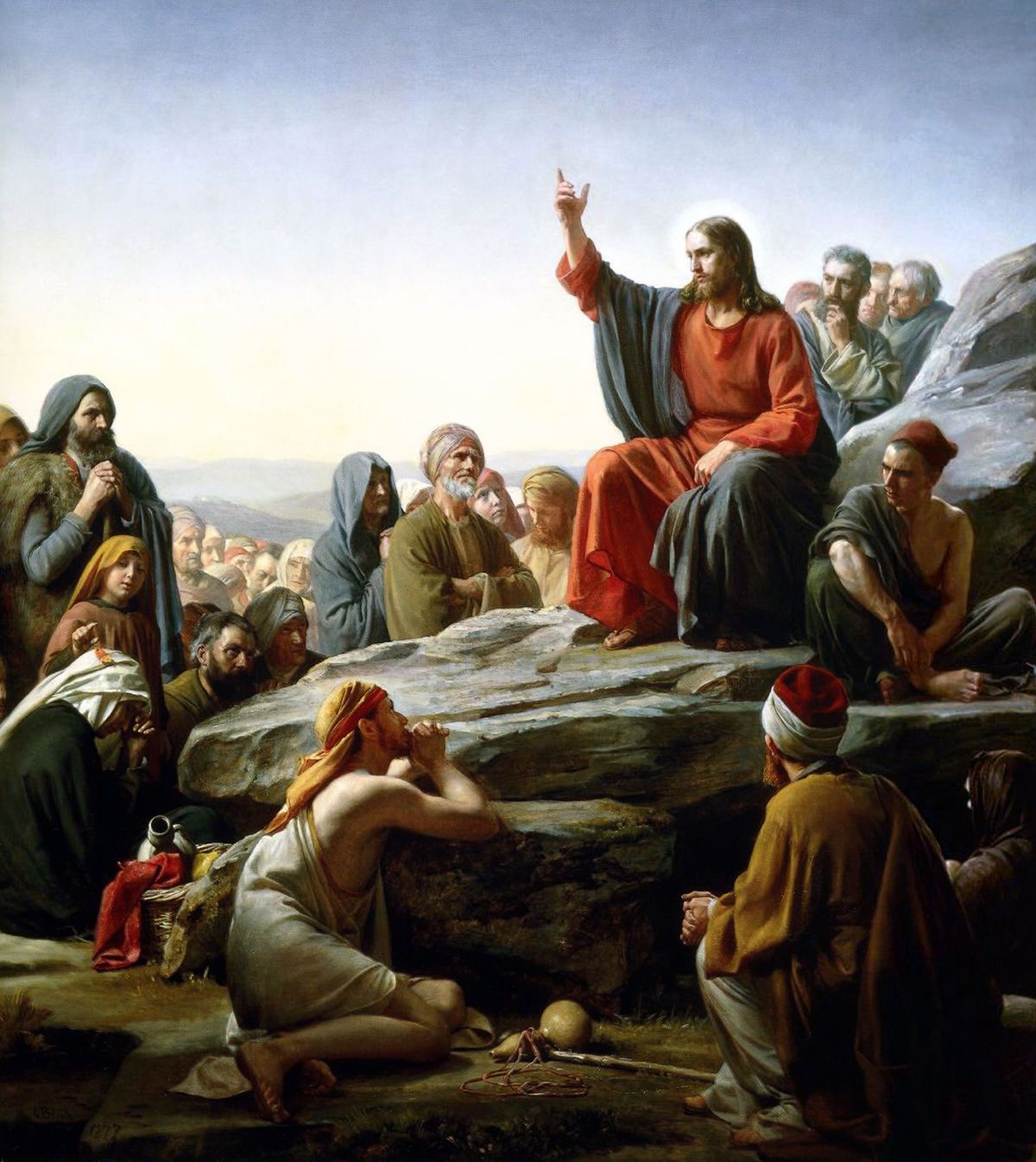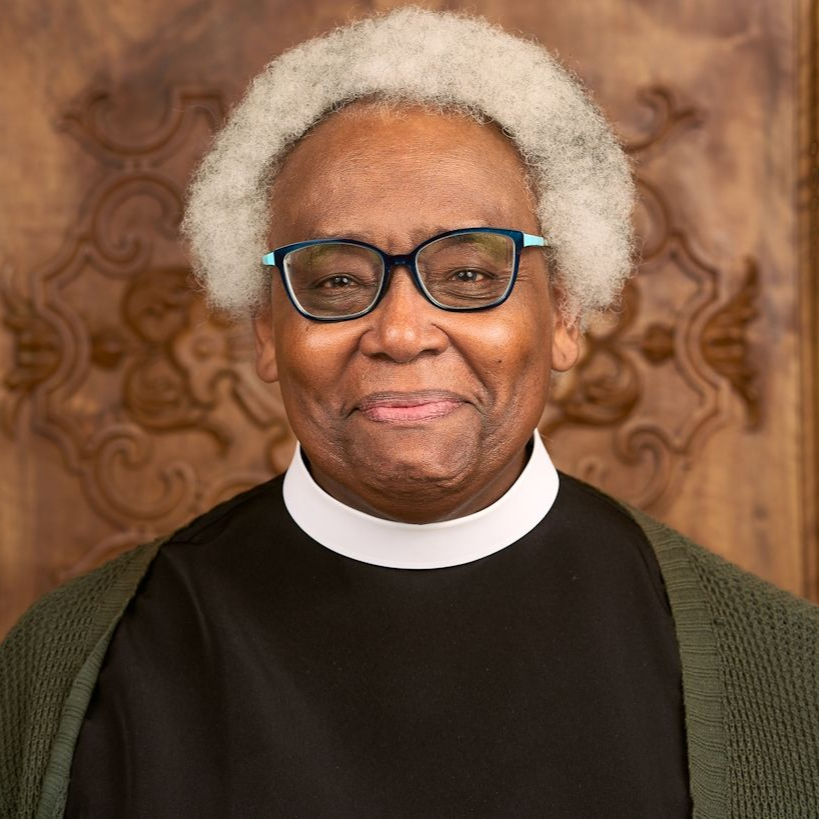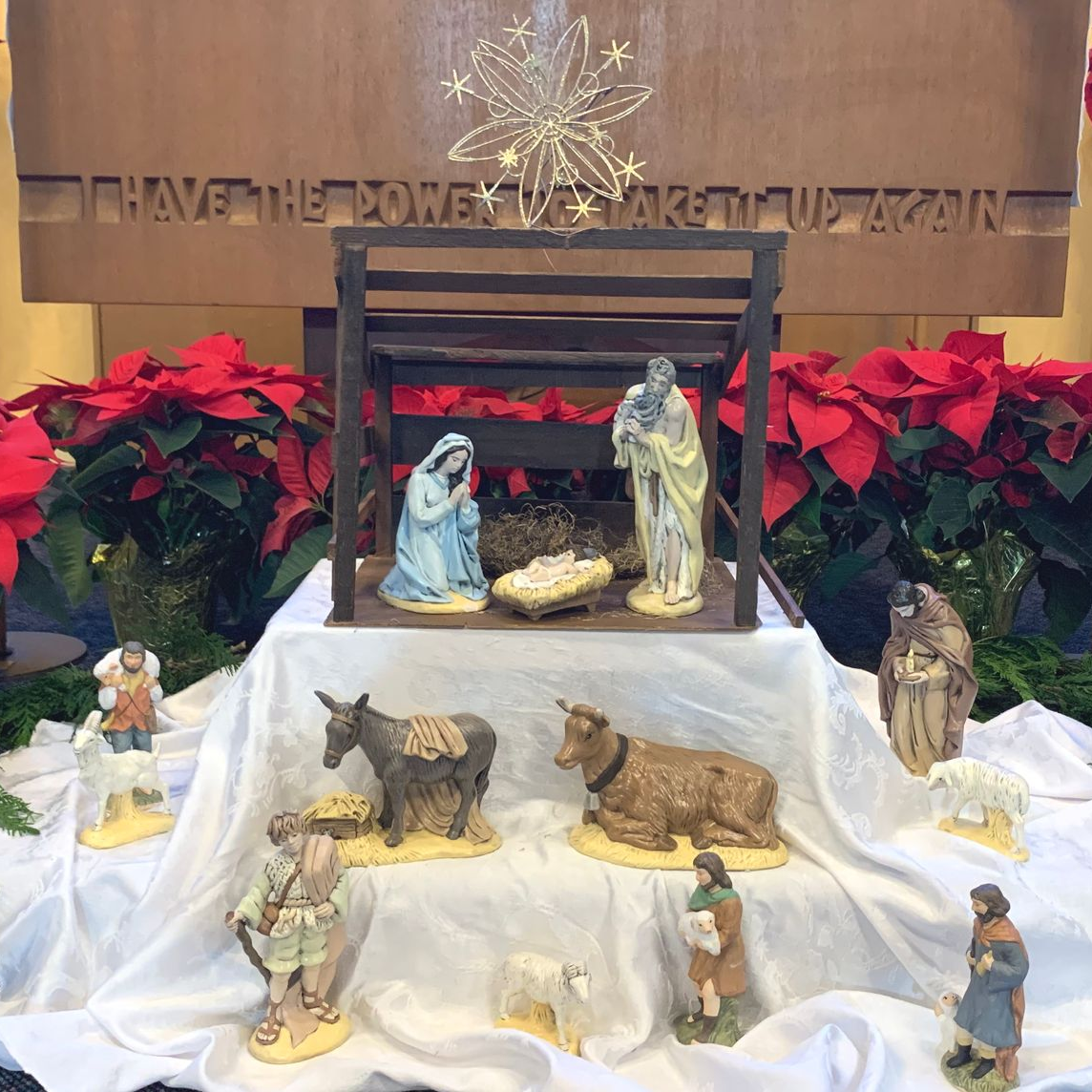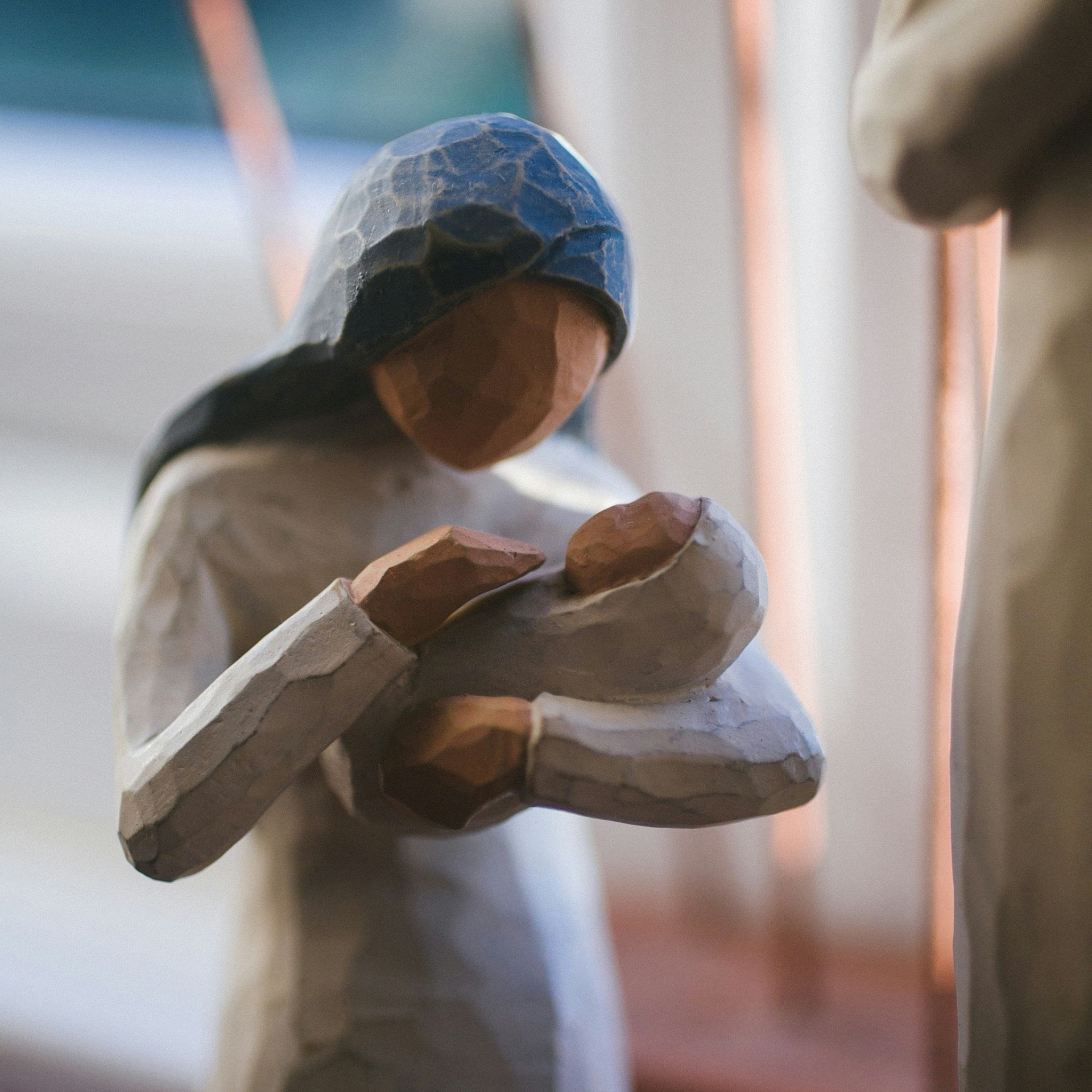What God Wants?
If everything that happens is God’s will, then we are ultimately powerless. If nothing that happens is God’s will, then God is powerless. Could the reality lie somewhere in the middle?
2024-42
sermon preached at Church of the Good Shepherd, Federal Way, WA
www.goodshepherdfw.org
by the Rev. Josh Hosler, Rector
Eighth Sunday after Pentecost (Proper 10B), July 14, 2024
Amos 7:7-15 ;
Psalm 85:8-13 ;
Ephesians 1:3-14 ;
Mark 6:14-29
Those are quite some readings, aren’t they?
I believe that the difficult parts of the Bible are best tackled not in the privacy of our homes with the book in hand and a befuddled look on our faces, but here, as a church. Here we can pool the wisdom of our diverse experiences and varying beliefs. Here we may even discern a message of hope in the midst of bleak confusion … like the bleak confusion of today’s readings.
So allow me to begin in a place you never would have. Roger Waters, the bass player for Pink Floyd, once recorded a song called “What God Wants.” (I’m sure I’m the only person in this room who remembers this piece of rock and roll obscurity.) Waters sings, “What God wants, God gets … God help us all!” And then he lists things that people at different times and places have claimed to be the desire of the Almighty: “God wants peace, God wants war, God wants famine, God wants chain stores. God wants crusade, God wants jihad, God wants good, God wants bad.”
Oh yeah? Who knows what God really wants? Whom do you trust to inform you of this? And how do you decide who is worthy of your trust? These are the kinds of questions that come to the forefront in the book of Amos.
Amos wrote around the year 750 B.C.E., long after the kingdom of Israel had split into the northern kingdom, Israel, and the southern kingdom, Judah. Amos was from Judah, but he crossed the border and proclaimed that God was about to destroy Israel.
The first thing I notice every time I hear this reading is the plumb line. Not being an engineer type, I always have to remind myself that a plumb line is an instrument used in construction to discover whether a wall has been built straight. In Amos’s vision, God uses the plumb line to assess that this wall (representing the Kingdom of Israel) is crooked. Israel has been achieving greater and greater wealth and security on the backs of the poor, and God is fed up with the situation. God is done here, and the divine punishment will be violence and death.
Now, whom would you trust to deliver such a horrible message? And would you believe them if you heard it?
Predictably, the Israelite priest Amaziah urges Amos to go prophesy someplace else. And isn’t that always the way it goes? How many people, feeling convicted and defensive, have uttered similar words?
“Look, I don’t like slavery either. But without it, the economy of the South will collapse. Can’t it wait a few generations?”
“Look, I know this Hitler guy is a little sketchy, but what happens in Europe is Europe’s business.”
“Look, I’m all in favor of people of different colors getting along. But can’t this Martin Luther King guy tone it down a bit? He’s making me nervous.”
“Look, I want to stop climate change as much as the next guy. But surely there must be a way to do it without lowering our expectation of infinite economic growth!”
The truths Amos prophesied were more than just inconvenient. Over the next few decades, the Assyrians began to press into Israel and take its rulers into captivity. By the end of the century, Israel was no more.
I imagine that nobody felt the inconvenience of his prophecy more acutely than the prophet himself. Responding to Amaziah, Amos says, “Hey, don’t shoot the messenger. I didn’t ask to be a prophet. I don’t even consider myself a prophet. I raise cattle and prune sycamore trees. But I’m also a loyal Jew, and I will always do what God wants of me.”
In other words, Amos is saying, “What God wants, God gets … God help us all! I don’t understand it, but God holds all the cards here.”
The ancient Jews considered disastrous occurrences to be punishment from God upon entire peoples, including innocent children. It turns our stomachs because we just don’t believe such things anymore. The existence of this perspective in the Bible is enough to convince many people to write off religion altogether.
But we need to remember that the people of the time attributed every good occurrence to God as well. The Hebrew Bible never lets the people of God off the hook; their sins are noted as explicitly as their good deeds. If God is powerful, can anything happen that God doesn’t at least tacitly approve? And if God is just, shouldn’t our nation get what it deserves?
And then, within the course of the Hebrew Bible, this worldview began to change. Later, the Prophet Jeremiah would insist that children are not punished for the sins of their parents; each of us answers for our own sins. And the Book of Job, finalized even later, questions whether anyone really gets what they deserve.
So which occurrences in your life do you attribute to God? Just the “acts of God” that insurance companies dread so much? Or do you believe God is intimately involved with every detail of your life? If everything that happens is God’s will, then we are ultimately powerless. If nothing that happens is God’s will, then God is powerless. Could the reality lie somewhere in the middle?
In our Gospel reading today, we are told that King Herod doesn’t want to execute John the Baptist, but he had made a foolish promise to his daughter, and he doesn’t dare lose face. (I’ll leave you to wonder, though, whether Herod felt some measure of relief at finally being rid of John, and also of being able to say, “Hey, it was actually my wife’s fault!”)
Was John’s death part of God’s plan? The conventional wisdom of the time was the same as that of Amos: “What God wants, God gets … God help us all!”
Maybe. Or maybe our evil deeds mess up God’s plans, and then God has to change course.
Yesterday a 20-year-old man tried and failed to assassinate former president Trump. Another person was killed in the process and several others badly injured. We don’t know what was going through the mind of the man who pulled the trigger. But if I had to make up the story of it, I imagine it would be something like this: “I need to kill him so he cannot turn our country into a fascist state.” A person with a religious bent might even convince himself that this was what God wanted him to do.
But before saying more, I’ll bring in another story for comparison. When I was 11 years old, a boy at my middle school was killed by a drunk driver. I remember saying to my mother, “Matt was such an amazing person: talented, outgoing, good-hearted. I guess I was wrong when I thought God had big plans for him.”
My mother replied: “Maybe God did.” Whoa. It hadn’t occurred to me before that any one of us can overturn God’s will through our own stupidity—none of this nonsense about “It was just his time, and God called him home.” We must not allow ourselves to believe that a drunk driver was God’s agent sent to kill a 14-year-old. Because if we can convince ourselves of this, we’re not that many steps away from deciding that God wants us to start pulling triggers.
No, if I had to relay to all of you a relevant message from God that I believe has run throughout my life, it is this. Christians are free to commit violence—God certainly doesn’t prevent us. But when we do choose violence, we need to recognize that it comes from some other playbook. There is no righteous use of violence in Christianity.
You are under no obligation to agree with me, of course. You may have a lot invested in the possibility of using violence to bring about good ends. You may even point out that the Lutheran pastor Dietrich Bonhoeffer conspired in a plot to kill Hitler. The plot failed, and Bonhoeffer was hanged in a concentration camp just weeks before it was liberated.
But make no mistake. Bonhoeffer fully expected to bear the full wrath of God for his efforts. Prayerfully, agonizingly, he concluded that the murder of one man could save many other lives. He did not see his decision as heroic. No, he saw it as evil. And he saw literally no way not to take part in that evil. God help me if I ever find myself in a similar position! I certainly can’t be Bonhoeffer’s judge. Only God gets to do that. But we must be very, very careful before we decide we must use evil to bring about good. Perhaps always, we will be wrong.
I recall that when Jesus’ disciples sliced off the ear of an enemy in self-defense, Jesus responded by restoring the amputated ear, commenting that “those who live by the sword will die by the sword.” And then Jesus went to his death.
One of my colleagues, the Rev. Benjamin Garren, posted this on Facebook yesterday:
The love [Jesus expects of us] is a love that lifts up the lowly and brings down the mighty. To pray for the love of Christ to manifest amidst our enemies is a prayer that they will be fed in regard to their hunger and emptied in regard to their fullness. The love … we pray others will encounter is not a prayer to be made lightly ... for to encounter that love in truth is to be transformed into something unrecognizable.
And Martin Luther King, Jr. said, “I have decided to stick to love. Hate is too big a burden to bear.” So consider the source. Sticking to love does not mean failing to oppose evil, as Amaziah did in his discomfort at hearing inconvenient truths. It does mean placing our very bodies between the oppressor and the oppressed. But I’m pretty sure that loving our enemies means we don’t get to kill them.
Why not? Because as humans, we are terrible at discerning when we are truly out of options. What God wants will always be bigger than we can imagine, and likely we won’t believe we can bear the inconvenience of it. So if you ever hear me bemoan in a moment of stress, “We have no choice now but to do an evil thing,” you have the right to kick me in the shins. Figuratively, please, not violently.
We are God’s children, eternally adopted in the deepest love. And we may well be able temporarily to derail God’s plans for our joy. But in the long run, nothing we do can stop God’s will. If we take a deep breath, swallow our pride, and develop a habit of prayerful listening, maybe we will even hear God’s voice: “Fear not. I am gathering up all things into me. There is no escape from my embrace, but neither is there any need for escape. What I want, I get—and I want nothing but love for every last one of you.”
What God wants, God gets. God helps us all! Amen.











